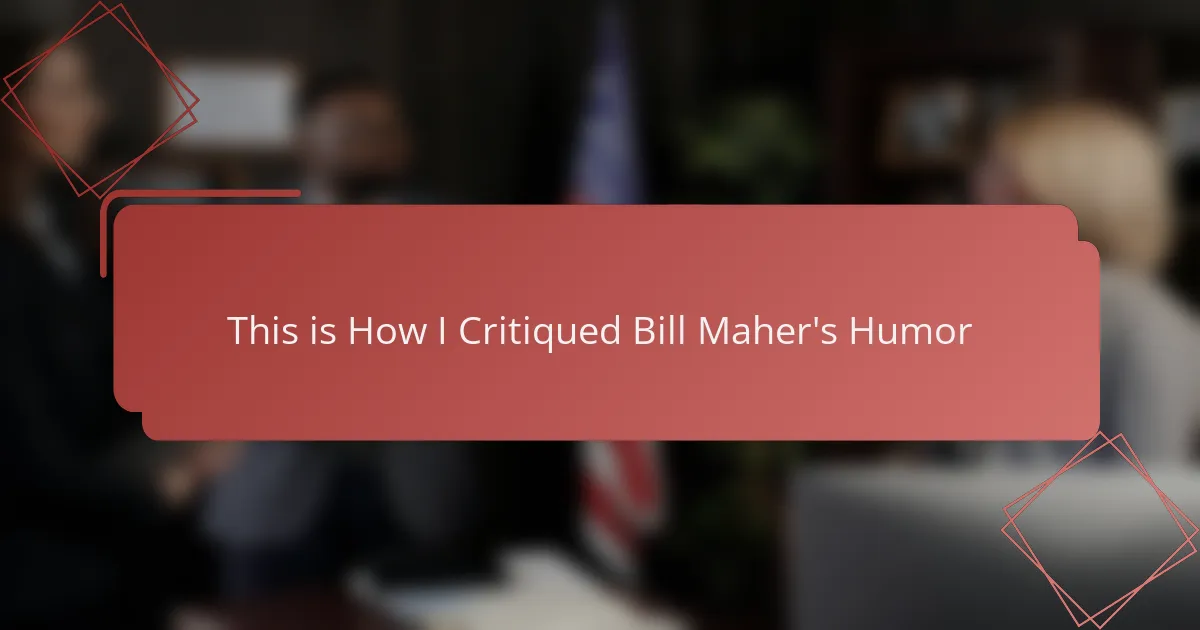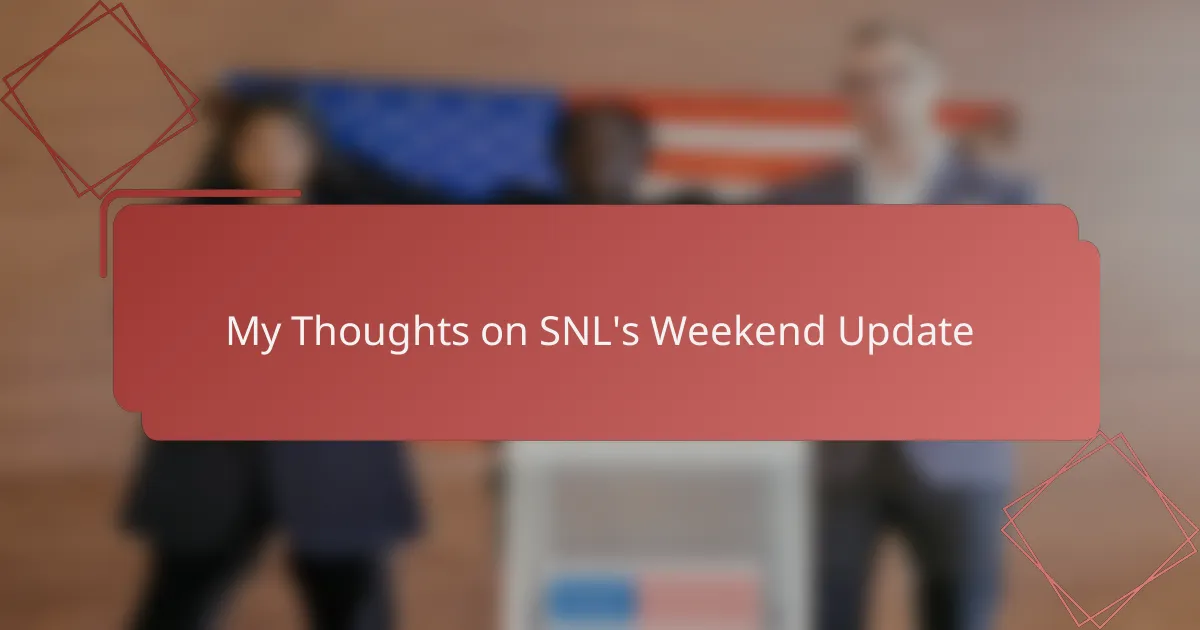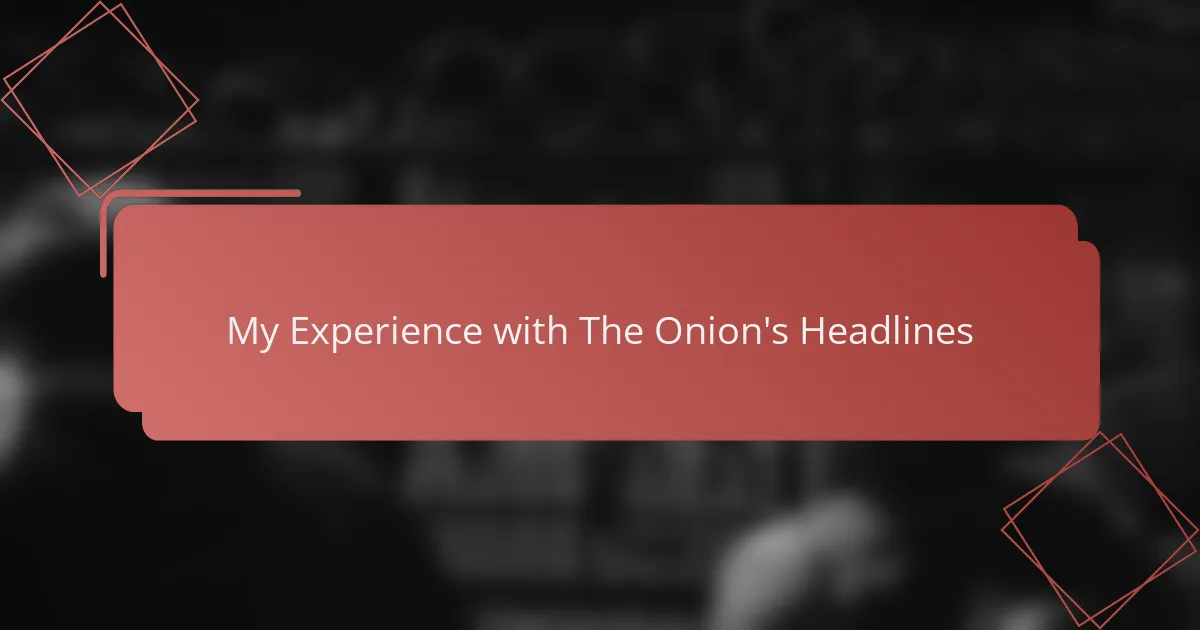Key takeaways
- Political satire serves as a powerful tool for social critique, blending humor with reflection to challenge norms and provoke thought.
- Key elements of effective political humor include satirical tone, timely references, and the ability to engage audiences while addressing serious issues.
- Bill Maher’s techniques, including his use of irony, sarcasm, and timing, enhance the impact of his comedy, prompting deeper contemplation on political topics.
- Critiquing satire involves assessing the intent, balance of humor and criticism, and the relevance to current events to determine its effectiveness and resonance.
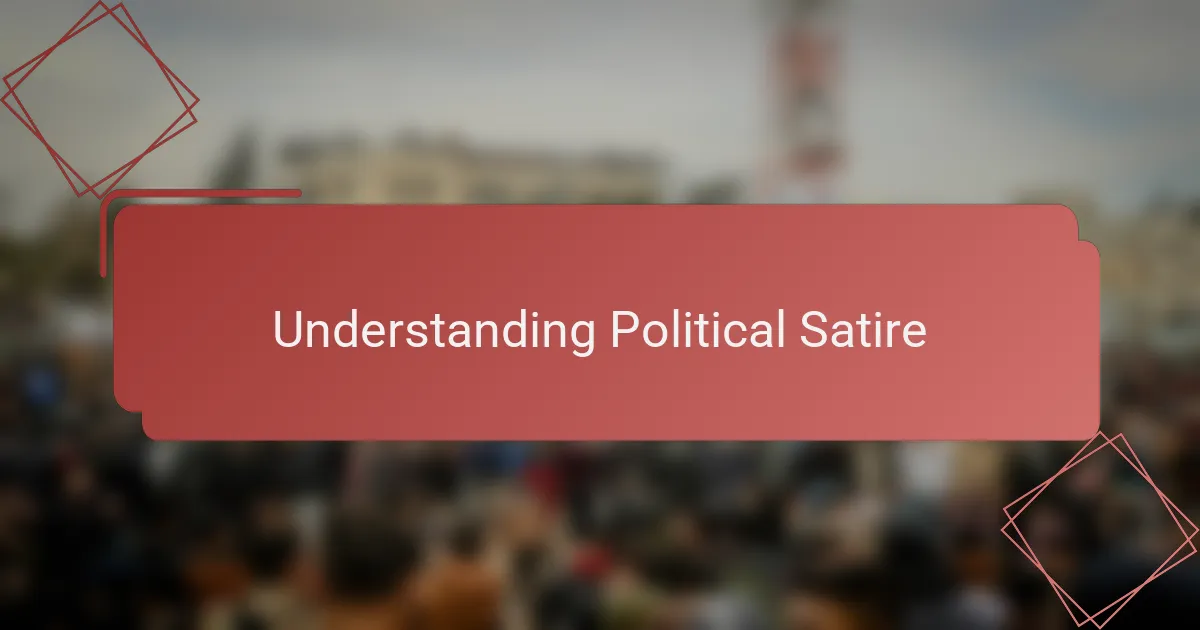
Understanding Political Satire
Political satire, to me, feels like a clever mirror held up to society—one that distorts just enough to expose uncomfortable truths. Have you ever laughed at a joke that also made you pause and think, “Hmm, there’s more to this”? That’s the essence of satire: humor blended with critique.
When I first delved into political satire, I noticed how it uses exaggeration and irony not just to entertain, but to challenge power and provoke reflection. It’s like a balancing act—walk the line between funny and biting without losing the audience. This complexity is what makes satire so impactful and often misunderstood.
But can satire truly influence opinions or change minds? From my experience, political satire sparks conversations that traditional commentary often can’t—because it disarms resistance with humor, making tough topics more approachable and less divisive. It’s an invitation to think, not just laugh.
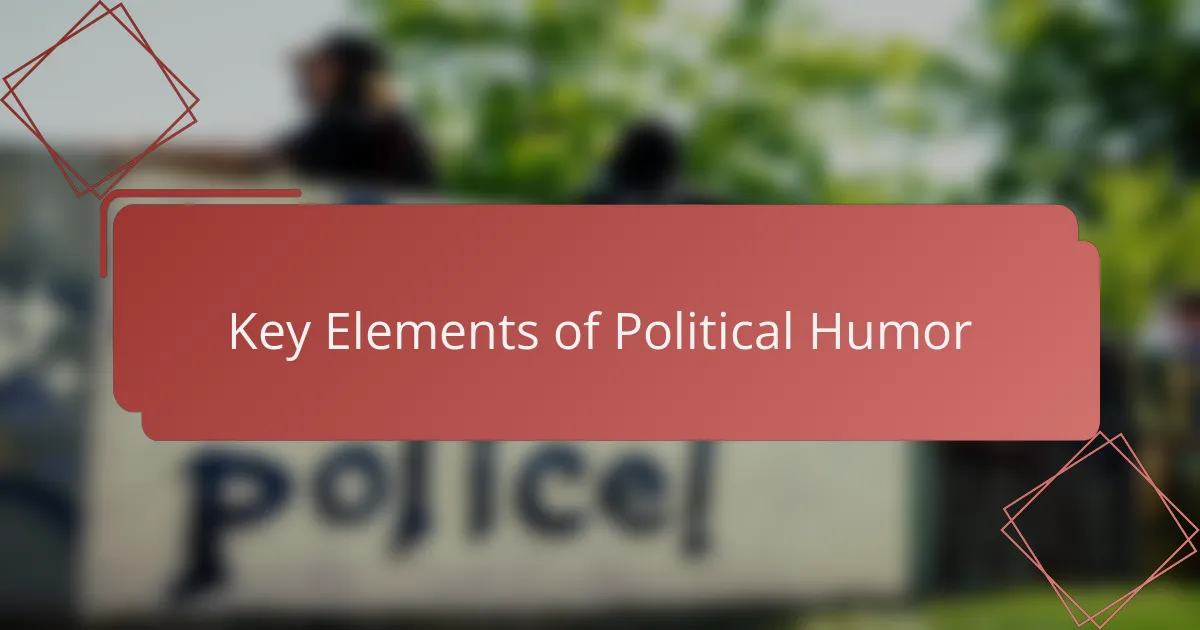
Key Elements of Political Humor
Political humor, especially in the realm of satire, thrives on a few core elements that shape its impact. From my experience watching Bill Maher, I noticed that sharp wit and timing are crucial—they turn a simple joke into a powerful statement. When Maher nails the delivery, you don’t just laugh; you’re provoked to think, sometimes uncomfortably.
For me, underlying truth is what makes political humor resonate deeply. Without it, the jokes feel hollow. Maher’s humor often hits harder when it exposes hypocrisy or challenges widely accepted narratives, drawing me in emotionally and intellectually. Here’s what I find essential in political humor:
- Satirical tone that balances humor with criticism
- Timely references that connect with current events
- Clear, relatable points that highlight contradictions or absurdities
- Use of irony and exaggeration to emphasize messages
- The ability to provoke thought while entertaining
- A personal voice that lends authenticity and engagement
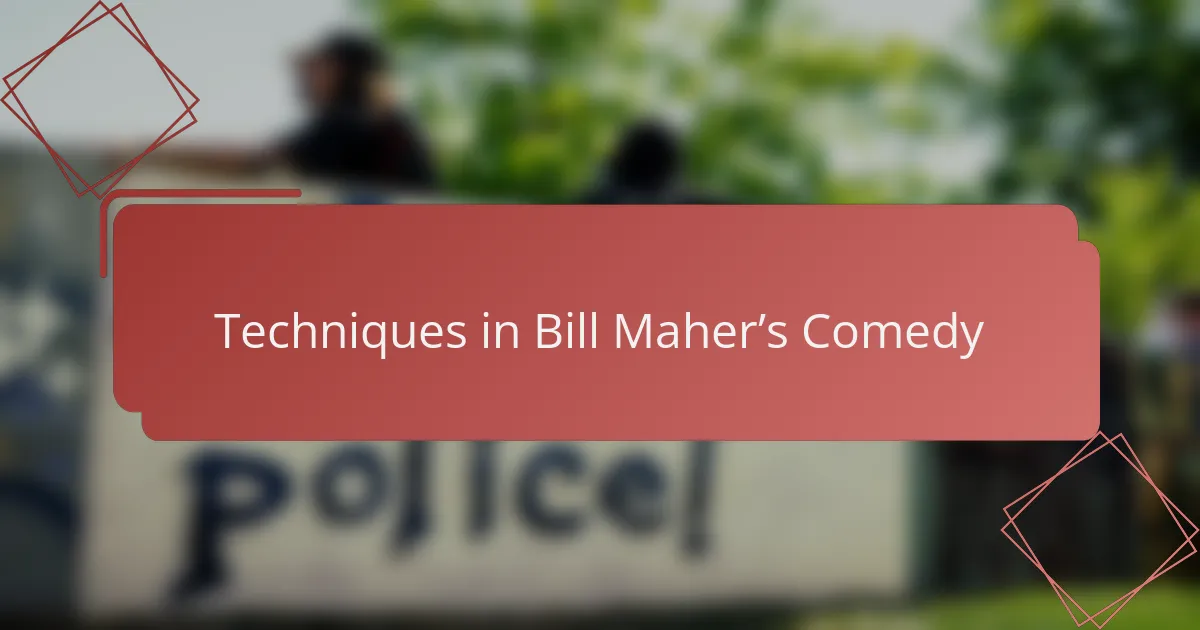
Techniques in Bill Maher’s Comedy
Bill Maher’s comedy technique often hinges on his fearless bluntness. I remember watching one of his monologues where he didn’t shy away from uncomfortable topics—instead, he tackled them head-on with a sharp edge. It made me wonder, how much does an audience appreciate honesty wrapped in humor versus just lighthearted jokes?
Another thing I noticed is his skillful use of irony and sarcasm. He twists common beliefs just enough to make you laugh, but also question why you believed them in the first place. This technique, from my view, is what separates casual comedy from political satire that truly resonates.
Finally, Maher’s timing and pacing are key. The way he pauses just before delivering a punchline allows the weight of his message to hit harder. It’s a subtle art, but it’s clear to me that this deliberate rhythm keeps viewers engaged and thinking long after the laughter fades.
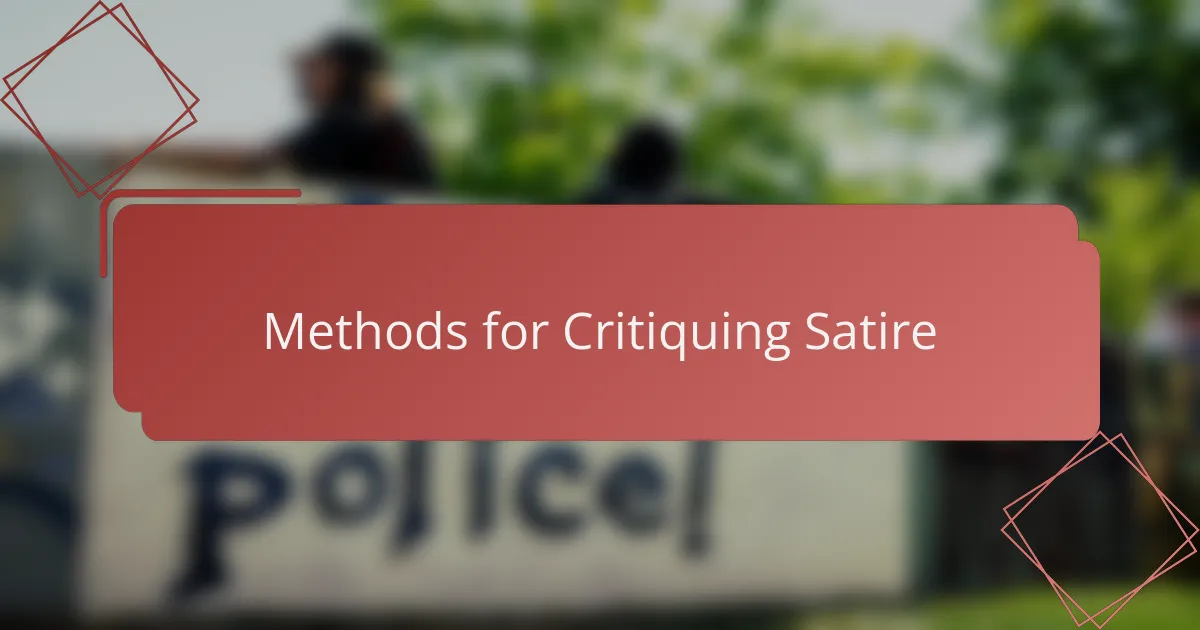
Methods for Critiquing Satire
When I critique satire, the first thing I focus on is the intent behind the humor. I ask myself: Is the satire aiming to entertain, to expose, or to challenge? Understanding the satirist’s purpose helps me appreciate whether the humor lands as clever insight or just falls flat.
I also pay close attention to how well the satire balances humor with criticism. In my experience, the best satire doesn’t just punch for laughs—it delivers a thoughtful jab that makes you reconsider your perspective. Does the satire provoke reflection without alienating its audience? That delicate balance is what separates sharp analysis from mere mockery.
Finally, context is everything. I reflect on the timing and cultural backdrop of the satire—does it engage with current events in a way that feels fresh and relevant? When I watched Maher, for instance, I found that his humor was often more impactful because it responded directly to what was happening around us. Have you noticed how satire can lose its edge if it’s disconnected from the moment? I certainly have.
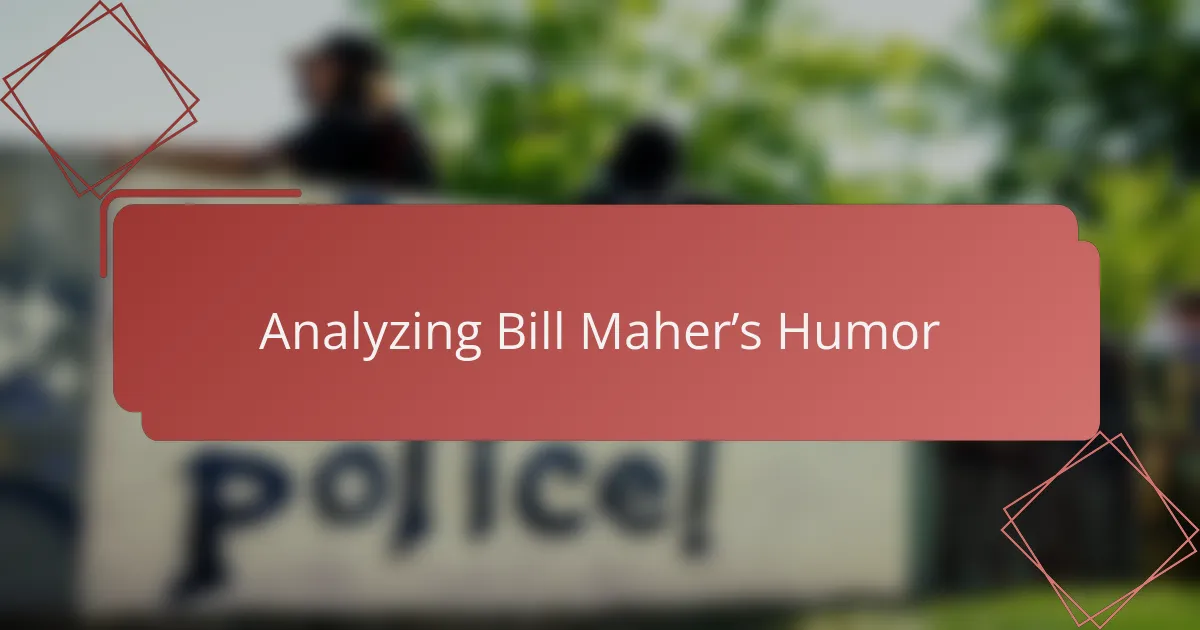
Analyzing Bill Maher’s Humor
Bill Maher’s humor strikes me as a complex blend of sharp wit and unapologetic frankness. When I first heard his jokes, I was both amused and provoked—his ability to challenge political norms while making me laugh felt like walking a tightrope. This delicate balance is what makes analyzing his satire so intriguing to me.
What stands out most in Maher’s style is his fearless critique of all sides, often using irony and sarcasm. From my experience watching his show, I’ve noticed he doesn’t shy away from sensitive topics, which can make his humor feel both refreshing and, at times, uncomfortable.
- Mastery of irony and sarcasm to highlight political contradictions
- Willingness to address taboo or controversial topics openly
- Equal-opportunity critique, targeting various political ideologies
- Use of personal storytelling to connect with his audience emotionally
- Sharp timing that enhances the impact of his punchlines
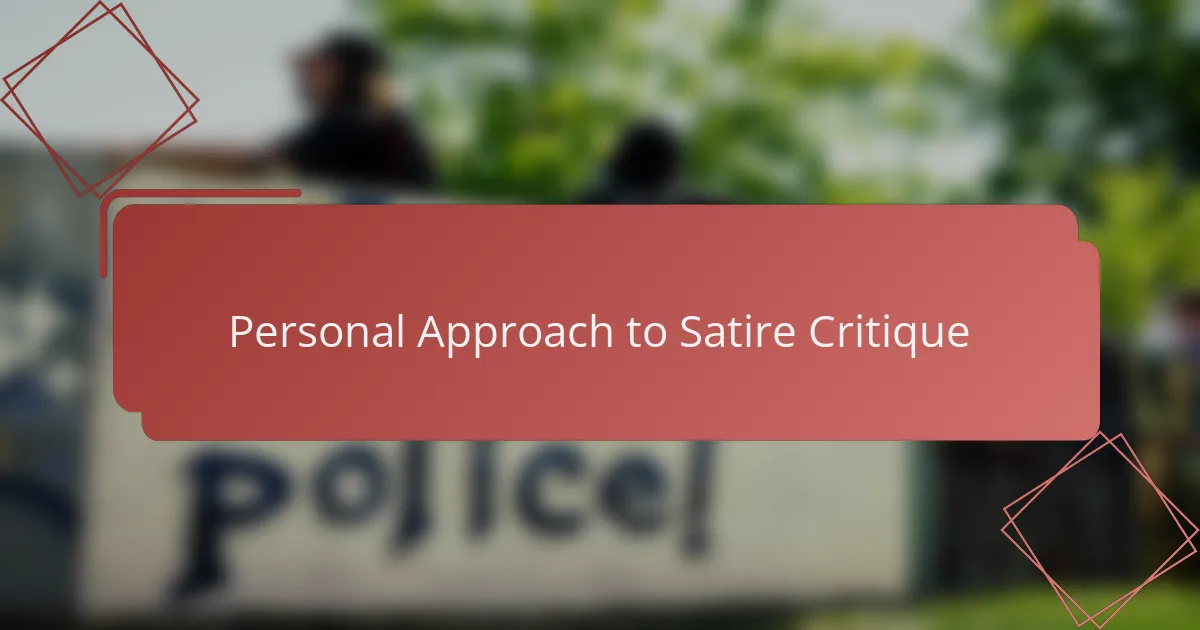
Personal Approach to Satire Critique
Personal Approach to Satire Critique
When I critique Bill Maher’s humor, I lean heavily on my understanding of political satire’s purpose—to provoke thought while entertaining. I find myself weighing how well his jokes land without sacrificing nuance; sometimes, humor can unintentionally oversimplify complex issues, and I’m sensitive to that balance. In one memorable episode, I recall feeling both amused and unsettled by a joke that framed a serious policy debate in an overly cynical light, which made me question the impact such humor has on public discourse.
| Aspect | My Critique Approach |
|---|---|
| Engagement | Focus on how humor connects with current political climate and audience awareness. |
| Nuance | Look for depth beyond the punchline; assess if complexities are respected. |
| Impact | Evaluate whether satire educates, enlightens, or merely entertains. |
| Emotional Response | Note my own reactions—amusement, discomfort, or reflection—as indicators of success. |
